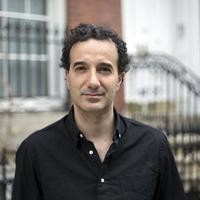Jad Abumrad is the co-creator and host of Radiolab. His latest podcast is Dolly Parton's America.
“There’s a way in which, I think, it felt more honest to be more confused in our stories. So that’s where we went.”
Thanks to Mailchimp and Pitt Writers for sponsoring this week's episode.




